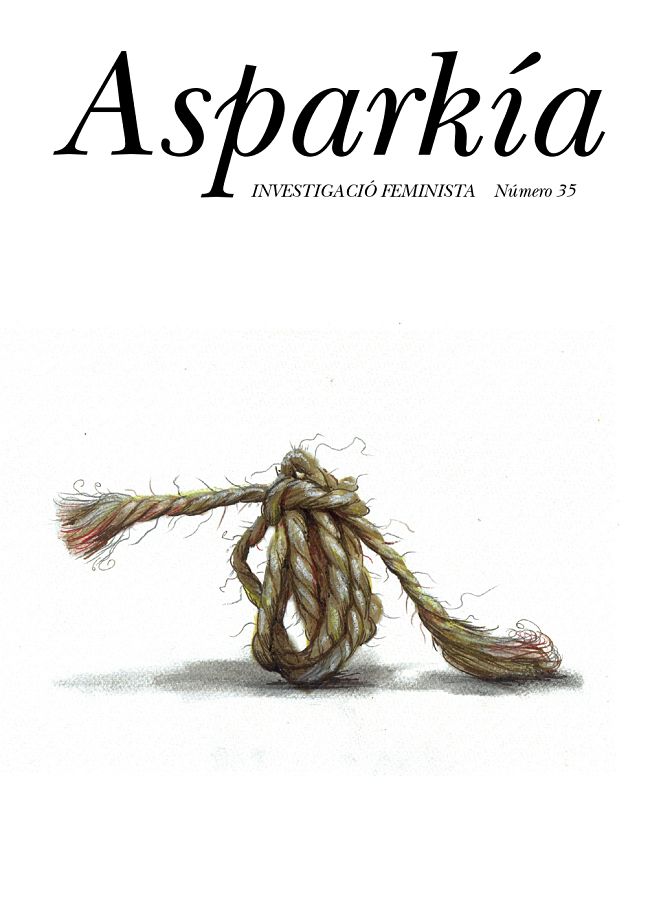El Dan Masculino, una referencia útil para la resignificación de la masculinidad / The Male Dan, A Useful Reference for a Resignification of the Masculinity
Main Article Content
Abstract
Resumen
El Dan masculino, conocido también como impersonación femenina entre académicos occidentales, consiste en una particularidad tradicional de las actuaciones teatrales de China, especialmente en Jingju, la Ópera de Pekín. Intento releer la dinámica entre la identidad y el cuerpo de dos figuras relevantes: Mei Lanfang y Leslie Cheung, en términos performativos apelando a la teoría de la performatividad de género de Judith Butler. El objetivo del trabajo presente será reflexionar sobre la categoría de masculinidad e intentar visibilizar y resignificar la masculinidad, abierta y fluida, que permita identificaciones múltiples y una identidad de pluralidad.
Palabras clave: sexo/género, masculinidad, cuerpo/sujeto, materialización, performatividad.
Abstract
The Male Dan, also known as female impersonation among Western scholars, is seen as a particularity of the traditional Chinese theater. Especially in Jingju, the Peking Opera. In this very article I’ll try to reread the dynamics between the identity and the body of two relevant figures: Mei Lanfang and Leslie Cheung, in terms of the Gender Performativity of Judith Butler. This article aims to rethink the category of masculinity and intent to make visible and re-signify a new masculinity, open and fluid, which allows multiple identifications and an identity of plurality.
Keywords: sex/gender, masculinity, body/subject, materialization, performativity.
Downloads
Article Details
References
BUTLER, Judith (2002). Cuerpos que importan. Sobre los límites materiales y discursivos del «sexo», Barcelona: Paidós.
BUTLER, Judith (2007). El género en disputa, Madrid: Paidós.
CHAN, Natalia Sui-hung (2010). «Queering Body and Sexuality: Leslie Cheung’s Gender Representation in Hong Kong Popular Culture» en CHING Yau (eds.) (2010). As Normal as Possible, Negotiating Sexuality and Gender in Mainland China and Hong Kong, Hong Kong, Hong Kong University Press, pp. 133-150.
CHEN, Shixiong (2010). «Nanbalei, Nandan, Nüxing de Xingbie he Meixue Wenti», en Wenyi Yanjiu (Literature & Art Studies), N˚2010-2, pp, 60-71.
CONNELL, R.W. (1995). Masculinities, Cambridge: Polity Press, 2005, 3 ͣ ed.
CORLISS, Richard (2001). «Forever Leslie» en Time, May 7. Disponible en: http://content.time.com/time/magazine/article/0,9171,108021,00.html
DONG, Zhongshu. «Chunqiu Fanlu» en Chinese Text Project, Disponible en: https://ctext.org/chun-qiu-fan-lu/ens
FOUCAULT, Michel (2012). Vigilar y castigar: Nacimiento de la prisión, Madrid: Editorial Biblioteca Nueva.
FOUCAULT, Michel (1983), El discurso del poder, México: Folios Ediciones.
FOUCAULT, Michel (1978), Historia de la sexualidad. La voluntad de saber, Madrid: SigloXXI.
FOUCAULT, Michel (1978). Microfísica del poder, Madrid: La Piqueta.
MEI Shaowu y Weidong MEI (eds.) (2005), Autobiografía de Mei Lanfang (梅兰芳自述), Beijing: Zhonghua Book Company.
HE, Chengzhou (2014). «Performance and the politics of gender: transgender performance in contemporary Chinese films», en Gender, Place &Culture, N˚2014 vol.21, No.5, pp. 622-635.
RILEY, Jo (Josephine) (2000). Chinese Theatre and the Actor in Performance, Cambridge: Cambridge University Press.
LAMAS, Marta (2013). El género: la construcción cultural de la diferencia sexual, México: Miguel Ángel Porrúa.
LAOZI (2014). Daodejing 道德经, Beijing: Zhonghua Book Company
LAOZI. «Dao De Jing» (Traducción de James Legge), en Chinese Text Project, Disponible en: https://ctext.org/dao-de-jing/ens
LAOZI (2018). Laws Divine and Human, Daodejing (道德经) (Traducción de Xu, Yuanchong), Beijing: China Intercontinental Press.
KIM, Suk-Young (2006). «From Imperial Concubine to Model Maoist: The Photographic Metamorphosis of Mei Lanfang», en Theatre Research International, N˚2006 vol.31, No.1, pp. 37-53.
TIAN, Min (2000). «The Paradox of Sex, Acting, and Perception of Female Impersonation in Traditional Chinese Theatre», en Theatre Journal, N˚ (Spring) 2000 vol. 17, No.1, pp. 78-97.
WANG, Robin R. (2005). «Dong Zhongshu’s Transformation of “Yin-Yang” Theory and Contesting of Gender Identity», en Philosophy East and West, N˚(Apr.)2005, vol. 55, No. 2, pp. 209-231


